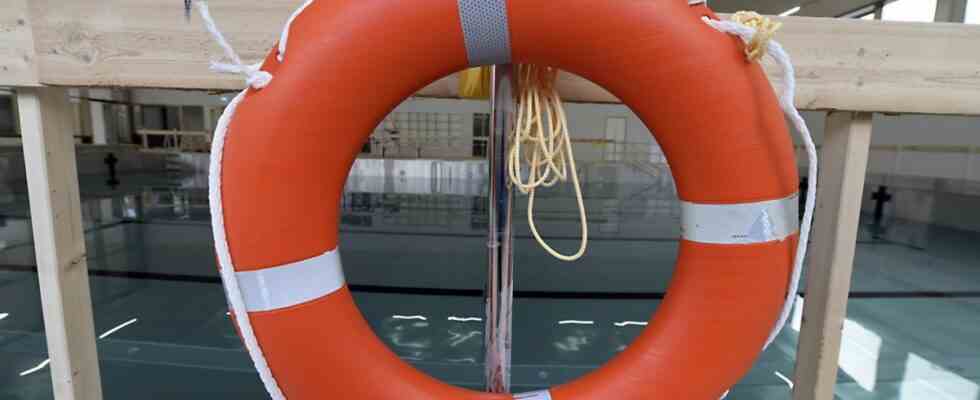There it is again, that motto that applies to many municipalities these days: “The fat years are over,” write the Hohenbrunn Greens in a press release on the municipality’s budget for the coming year, which was approved by the municipal council last week. The enormous energy costs put a strain on Hohenbrunn’s finances, not least because of the new indoor pool, which only recently opened for school sports before the Riemerlinger Haie club swimmers were also allowed to train in one of the pools with six lanes in January. In addition to the ongoing burdens, such as the expenses for personnel, there are the one-off investments in the construction of the pool and the sports hall: The sports campus accounts for 5.3 million euros, which corresponds to an increase of around 20 percent compared to 2017, when planning began.
And so, against the background of the consequences of the Corona crisis, inflation and interest rate developments, the figures are currently rather gloomy: since 2019, the municipality’s reserves have fallen from 15 million to three million euros. In return, the debt has increased sixfold from 2.5 million to 15 million euros. In addition, there are liabilities for the school special-purpose associations in the amount of over 14 million euros. Mayor Stefan Straßmair (CSU) remains calm despite the key data of the annual budget: “We are in the middle of a year of war and have no idea what to expect.”
It was above all the “massively high energy costs” and the additional burdens caused by the award for the new secondary school in Hohenbrunn West that meant that one had to act a little more cautiously, Straßmair continued. That’s why all those projects that have now been removed from the budget are “not canceled, just postponed”. This affects the planned roundabout on the B 471 at the TSV Hohenbrunn sports grounds, where a supermarket and a residential area have been planned for years, and the replacement building for the Feststadl on the Muna site, which has also already been approved by the municipal council. The planned expenses for social housing and the purchase of housing melted together from 3.4 million to 1.15 million euros.
“Ordering and then not wanting to pay doesn’t work,” says the mayor
The citizens’ forum, whose three local councils were the only ones who voted against the budget and were also supported by the Green Georg Bauer in their vote against the medium-term financial planning, sharply criticizes the mayor’s policy: The budget and the future concept would only stand “with great difficulty”. “And that’s only because the remaining plots of land in the Muna will be sold completely by 2026.” The fact that the projects mentioned, such as Stadl and roundabout, are only being postponed is “probably more due to the principle of hope. We do not share this opinion,” says a press release from the parliamentary group.
Straßmair rejects the criticism: “We bought the Muna plots back then in order to rededicate them and be able to sell them again as commercial areas. That was the plan from the start.” When it came to whether a secondary school was wanted, the citizens’ forum voted in favor of it, and now the municipal councils have rejected the budget. “Ordering and then not wanting to pay doesn’t work,” says the mayor, who also defends the melted reserves and the debts taken on: “We saved so that we can afford things. And we’re doing that with the construction, for example of the swimming pool.”
While the Greens are calling for “a longer lead time” and “absolute transparency in the process” for future budget deliberations, the citizens’ forum has drawn up an “eight-point plan” that the municipality should use as a guide for its financial policy. This involves, for example, developing ideas as to where social housing could be built in the community, identifying opportunities for targeted commercial settlements or critically analyzing current projects such as the sports campus and drawing appropriate conclusions.

